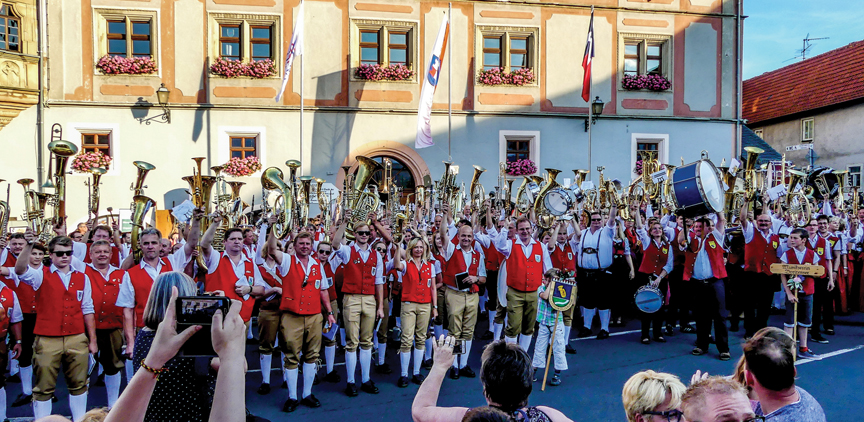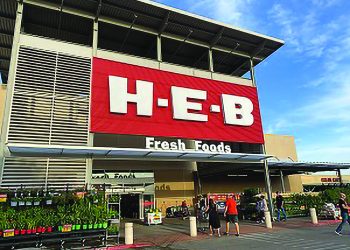
My wife and I recently returned from our third visit to Arlington’s sister city of Bad Königshofen in Germany. This time, the occasion was the dual celebration of the 65th year of the partnership between the two towns and the German community’s 1,275th anniversary.
That’s right, the little Bavarian village is more than a thousand years older than our country. Our son Brian was along for his second visit there, and his 13-year- old daughter Ashley was making her first. The four of us joined the Arlington delegation of 18 other travelers led by Arlington Mayor Pro Tem Sheri Capehart enjoying the four days of festivities..

For readers who may be just discovering the relationship between two such different places more than 5,000 miles apart and separated by the Atlantic Ocean, here’s a little history of how it all began:
With so much of Europe in ruins after World War II, the lives of people everywhere there were in a state of desperation. Former Federal Reserve governor and Yale University economist Henry Wallich described conditions in a 1955 book, “Mainsprings of the German Revival”:
“Each day, vast hordes of people trekked out to the country to barter food from farmers … hungry people traveled sometimes hundreds of miles at snail’s pace to where they hoped to find something to eat. They took their wares – personal effects, old clothes, sticks of furniture, whatever bombed-out remnants they had – and came back with grain or potatoes for a week or two.”
As a result of a chance visit to Arlington in the summer of 1951 the city manager of Bad Königshofen, Kurt Zühlke, was a guest in the Arlington home of Theda Howell, an active member of Arlington’s then small community – about the same size as this German village. Learning of the circumstances the people there were facing, Ms. Howell introduced Zühlke to Arlington’s newly elected young mayor, Tom Vandergriff, and various community service clubs and churches.

By February of 1952, a railroad boxcar filled with food items, clothes, shoes, and a variety of everyday materials had been collected by Arlington citizens and was dispatched, following a ceremony pictured below, from the city’s railroad station to the despairing residents of Bad Königshofen.
It would be the first of four such shipments that would continue for the next three years. It’s not really possible to fully understand the sense of gratitude felt for the kindness of Arlington citizens who had reached out to help people they had never met in a place they had never heard of before.
Well, it’s not possible unless you meet one of the beneficiaries like a senior gentlemen who tapped my wife on the shoulder at one of the public events while we were there. “Arlington?” he asked. When she said yes, he explained that he was a child with his refugee parents who had found their way to Bad Königshofen looking for refuge after the war.

“We had nothing,” he said. “Someone handed me one of the ‘packets’ from Arlington, and then I had shoes and some clothes and …” His voice trailed off as tears formed in his eyes. In all three of our visits, we have been approached by recipients of the aid packages, or their children, with similarly emotional expressions.
Our first trip was in 1988. My assistant at city hall, Lynda Freeman, had researched the history of the relationship and felt it was past time for an Arlington mayor to visit our only sister city and re-establish the bonds of friendship. Such a journey had not been made before, so that’s what we, along with other interested Arlington folks, did. We then returned in 1991 for Bad Königshofen’s 1250th anniversary.
Twenty-five years seems to have passed quickly. In the interim, Arlington hosted their mayors – called “Burgermeisters” in Germany – and their delegations visited here. Our mayors Elzie Odom and Bob Cluck and others also traveled there during that time period.

It’s always an amazing experience, and the bonds grow ever stronger even among people who where not yet born in the decade of the 1950s when it all began. Both cities have dedicated public parks and erected monuments designed by local artists honoring the relationship, and there is word that Arlington will host another visit here on the fourth of July next year.
We thought engaging Ashley in the friendship and culture of a foreign place and its people would be educational and enjoyable for her. It was all of that and much more. You need be there only a few moments to realize there’s nothing foreign about the incredible hospitality, openness and decades of expression of gratitude that is as present today as it was when those first relief shipments arrived there almost 65 years ago.















